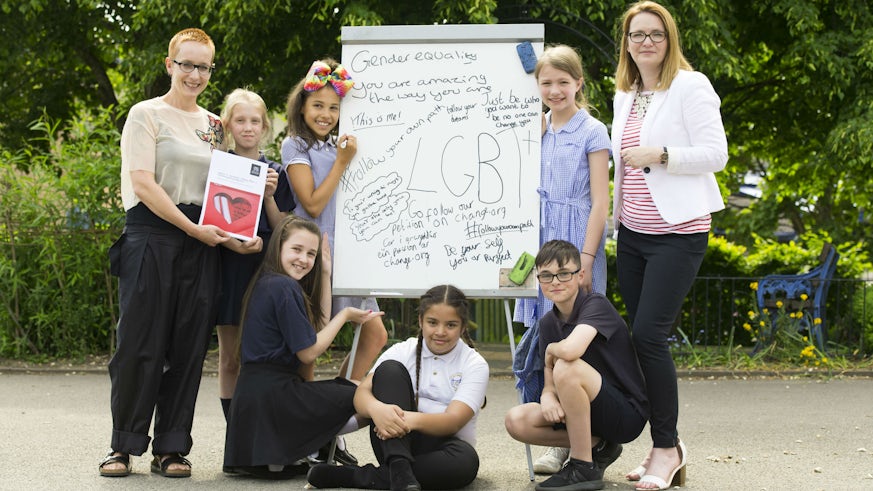New statutory Relationships and Sexuality Education for Wales
22 May 2018

A review of the Sex and Relationships Education (SRE) curriculum in Wales has led to sweeping changes in how it will be taught in schools.
Education Secretary Kirsty Williams announced that this area of study will become Relationships and Sexuality Education (RSE) – a statutory part of Wales’ new curriculum, which will be in place from 2022.
The reforms take place in light of recommendations by an expert panel led by Emma Renold, Professor of Childhood Studies at Cardiff University.
At present, SRE is a statutory part of the basic curriculum for secondary schools in Wales but it is down to schools to decide what and how it gets taught.
The expert panel concluded that: current law and guidance on SRE is outdated; current provision of SRE in primary and secondary schools is limited; not enough attention is given to rights, gender and sexual equalities, emotions and relationships; there is a gap between children and young people’s lived experiences and the content of SRE; and SRE as a curriculum area is often poorly resourced and given low priority in schools, leading to uneven and unequal provision.
The new RSE will represent a major departure from current practice. It will enable learners to engage with a broader curriculum that is fully inclusive and respectful of all genders and sexualities. It will address core issues, including consent and relationship abuse.
This more holistic definition of RSE will enable teachers to develop a relevant and needs-led programme that can encompass all six areas of learning and experience from the humanities and expressive arts to sciences and technology.
The decision to change the focus of this area of study to relationships and sexuality, as well as the decision to make it statutory, reflects its immense importance in terms of how learners understand themselves, each other, their community and society.
When Wales’ new curriculum is in place in 2022, RSE will become statutory from the age of 5 to 16. It will be accompanied by new statutory guidance and training and support for teachers, in both initial teacher education and within the existing workforce.
“Underpinning the new curriculum with the core principles of rights, equity, inclusivity, protection and empowerment makes for a very promising future for RSE in Wales and takes forward some of the best practice already underway in primary and secondary schools in Wales, and internationally.”
Kirsty Williams AM, said: “The days of traditional sex education are long gone; the world has moved on and our curriculum must move with it. The fact is relationships and sexuality shape our lives as well as the world around us. They are a fundamental part of who we are and how we understand ourselves, each other and society.
“Crucial to all of this will be ensuring that our teachers have the knowledge and confidence to provide the RSE our learners deserve. That’s why we’re providing to ensure that we get the training and professional development right.”
To kick-start this process, Welsh Government will be making £200,000 available to education consortia so they can begin the process of identifying professional learning needs in this area. A further £50,000 has also been awarded to Welsh Women’s Aid to develop resources and training for schools.
Professor Renold and the Education Secretary joined learners at Ysgol Gymraeg Casnewydd and Bassaleg School in Newport to see how they are working across the curriculum to understand issues such as gender and sexual equalities and rights.
Ceri Parry, Headteacher of Ysgol Gymraeg Casnewydd, said: “I fully support the new vision for RSE in Wales. We must ensure that our children are nurtured to embrace diversity and tolerance for all, as they are the future voice of a progressive Wales.”
Ben Lane, Well-Being co-ordinator at Bassaleg School, a comprehensive in Newport, said: “As a school we welcome the new relationships and sexuality education proposals, and the emphasis on healthy relationships which contribute to young people’s wellbeing, celebrate their individuality and emphasise their right to be happy.”
Share this story
The School is an internationally recognised centre of high quality teaching and research.



